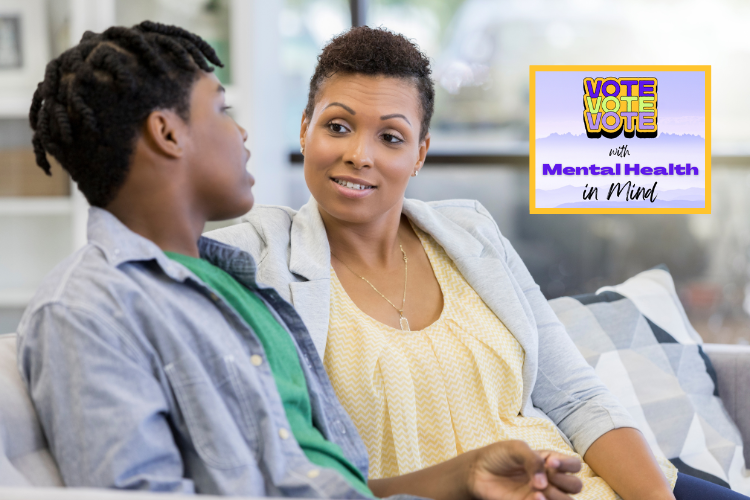By Jacque Cutillo, Youth Villages
Mental health professionals offer guidance for parents and caregivers on helping youth to navigate political discussions, manage information overload and maintain mental wellness
From local races to the national election, many adults feel bombarded by all things political thrown at them. It’s enough to wear on any adult’s overall mental state. So, if this can overwhelm an adult, imagine how the barrage can affect youth.
Like us, our children see the news and ads and hear the discussions. Nowadays, they see it pop up on their devices, even though they aren’t searching for it. In addition, they hear about the election at school from peers and through assignments — writing papers or completing projects — that center on the election.
Election season is not only overwhelming for children, but the information can be confusing, contradictory or different from what people in their natural network believe, especially with little or no guidance. So, how can caregivers help?
First, they need to be attuned to ways their children receive and process information and the impact of social media, streaming on devices, television and conversations among adults and peers. Children and teens may show changes in emotions, behavior and physical reactions. Here are some signs to look for:
- Lack of emotional control when sensitive topics are discussed
- Increase in emotional instability
- Decreased ability to regulate (emotionally and physically)
- Changes in peer group
- Struggles transitioning away from media material or increased interest in particular topics.
Next, we can help youth by encouraging open conversations about the elections. Although these discussions may be challenging, adults need to utilize skills for staying present, answering questions honestly and looking for more information when things become confusing.
When engaging in these conversations, pace yourself, take breaks and remember it is OK to respectfully disagree, even with children that have different opinions from yours. As caregivers, you are modeling how your children receive and digest this information. Here are a few tips to stay regulated:
- Understand the root of your emotional response
- Identify questions and concerns you have and seek information to further your understanding
- Utilize your own healthy coping skills
- Know when to step away from information or conversations
- Focus on what you can control
- Maintain boundaries.
In addition to helping youth cope with their emotions, parents and caregivers must be mindful of kids' physical and emotional safety. As your family navigates election season, seize opportunities to research information together, reassure concerns and provide unconditional, positive support for overall mental wellness.
If you're noticing significant changes in mood or behavior in your child or teen or if your family needs additional assistance for mental health challenges, contact the 988 Lifeline.
Jacque Cutillo is the assistant clinical director for the community-based programs of Youth Villages and has been with the national nonprofit for 17 years She holds a Ph.D. and is professionally licensed in several states.
Article republished with permission from Youth Villages, a national leader in mental and behavioral health committed to finding the most effective solutions to help children, families and young adults overcome obstacles and live successfully. Read the original article here.


